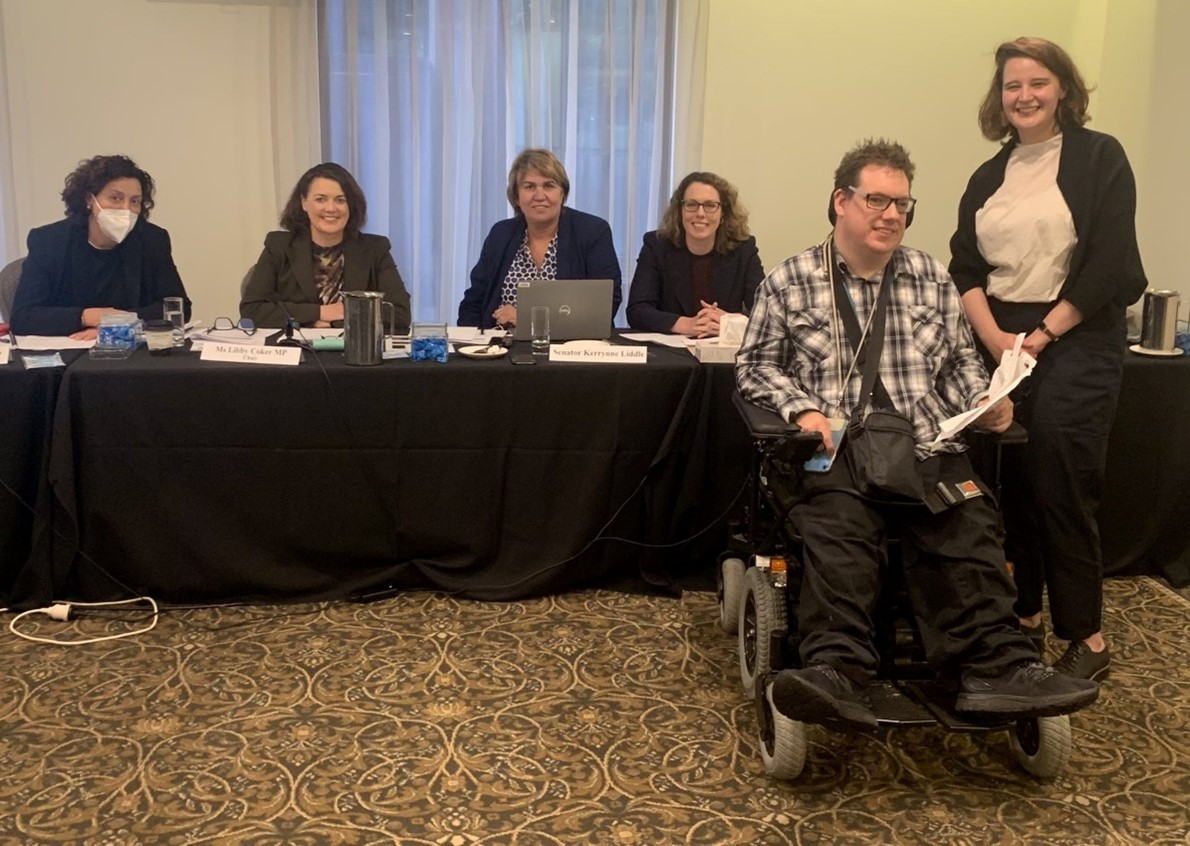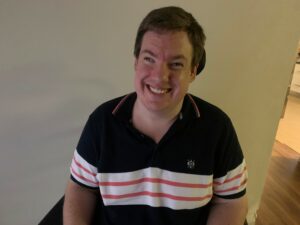Talking about what works and what needs to change with the NDIS
On Friday 18 November, members of the Inclusion Australia Policy Team were invited to speak to the Joint Standing Committee on the National Disability Insurance Scheme (NDIS).
The Committee monitors and reports on the implementation, performance, governance, administration, and expenditure of the NDIS.
As part of this work, the Committee is talking to people about the Capability and Culture of the National Disability Insurance Agency (NDIA). This includes looking at how the NDIA works and how that affects people with disability and NDIS participants trying to access information, support and services.
Inclusion Australia wrote a submission to the Committee in October 2022. This included feedback from the Our Voice Committee members. They have been talking to people with an intellectual disability around Australia about the NDIS. They talked to self-advocacy groups, peer meetings, friends, and people they work with about what is working with the NDIS and what needs to change.
The Committee invited representatives from Inclusion Australia to talk in person about our submission and to ask some more questions.
Maeve Kennedy, Senior Manager Policy and Projects, and Luke Nelson, Policy Officer and Our Voice representative for Victoria, met with the committee members in Melbourne. They included Senator Kerrynne Liddle and MPs Dr Monique Ryan, Libby Coker and Alicia Payne.

(L-R) Dr Monique Ryan MP, Libby Coker MP, Senator Kerrynne Liddle, Alicia Payne MP, Luke Nelson, Maeve Kennedy.
Maeve and Luke told the Committee that two of the big problems Our Voice has identified are bureaucracy and issues with information and planning. They also talked about the importance of advocacy – including self-advocacy – and the importance of supported decision making.
Speaking afterwards, Luke said “I was nervous at first but once I got started the nerves went away. I think that the Committee was listening. I certainly felt like we got a good reception.” You can read more of Luke’s account of the day below.
You can read our submission to the Joint Standing Committee here: Submission to NDIS Joint Standing Committee on NDIA culture and capability – Inclusion Australia
‘Relax and be yourself – you’re not on trial!’ – reflections on talking to the NDIS Joint Standing Committee
My name is Luke Nelson. I am part of the policy team at Inclusion Australia.
On Friday the 18th of November myself and Maeve Kennedy went to the Stamford Hotel in Melbourne and attended the Joint Standing Committee on the NDIS to talk about issues that people have found with the NDIS. 

I went because I was part of a Supported Decision Making project for the NDIS with Inclusion Australia and I am now an Inclusion Australia Policy Officer. I also did work with Our Voice about what’s working at the NDIS and what’s not working.
There were senators and MPs on the committee. We read a prepared statement and then they asked us questions around the NDIS.
We talked about issues that people have with the NDIS. For example, how difficult it is to get to speak to anyone, and the NDIS taking a long time to get any decisions. We talked about problems with self-management. We also talked about the way how it all works at the NDIA. [People told us] that every time that you had to go to the planning meeting it was like going to a court hearing – and having to explain exactly what you need all over again. There was a discussion about supported decision making, and what that was and how it helps with the NDIS. We also talked about if self-advocacy and advocacy was funded under the NDIS, and whether that would help if it was funded.
We only had a couple of days to prepare but I had good support around me to do it. To help prepare I read a lot about what people told Our Voice in the consultation. We had to go through it and pick out what we were going to bring to the Joint Standing Committee because the hearing was about the NDIS culture. We had to pick out things that were related to that topic.
I was nervous at first but once I got started the nerves went away. I think that the Committee was listening. I certainly felt like we got a good reception. They were very easy to talk to. Even though it was a serious thing, they didn’t make it feel too serious, they just let us have a conversation. So that was good.
I think they were surprised at some things we said, for example, when people told us that the NDIA doesn’t feel like a welcoming environment; it doesn’t feel like people with disabilities are welcome there. I think that sort of shocked them but hopefully they will go away and think about what we said. I think we got the message across.
I have spoken to different committees in the past, like reference committees with people with disabilities on them and disability professionals but nothing in terms of Senators and stuff like that.
If I was giving advice to someone who had to speak in front of a committee to help them prepare, I would say ‘relax and be yourself – you’re not on trial!’
Make sure that you read your notes properly. It helps to prepare by reading what you’re going to say, practicing a few times around what you’re going to say so that you don’t forget. I enjoyed it. It was nerve wracking but a great learning experience.
